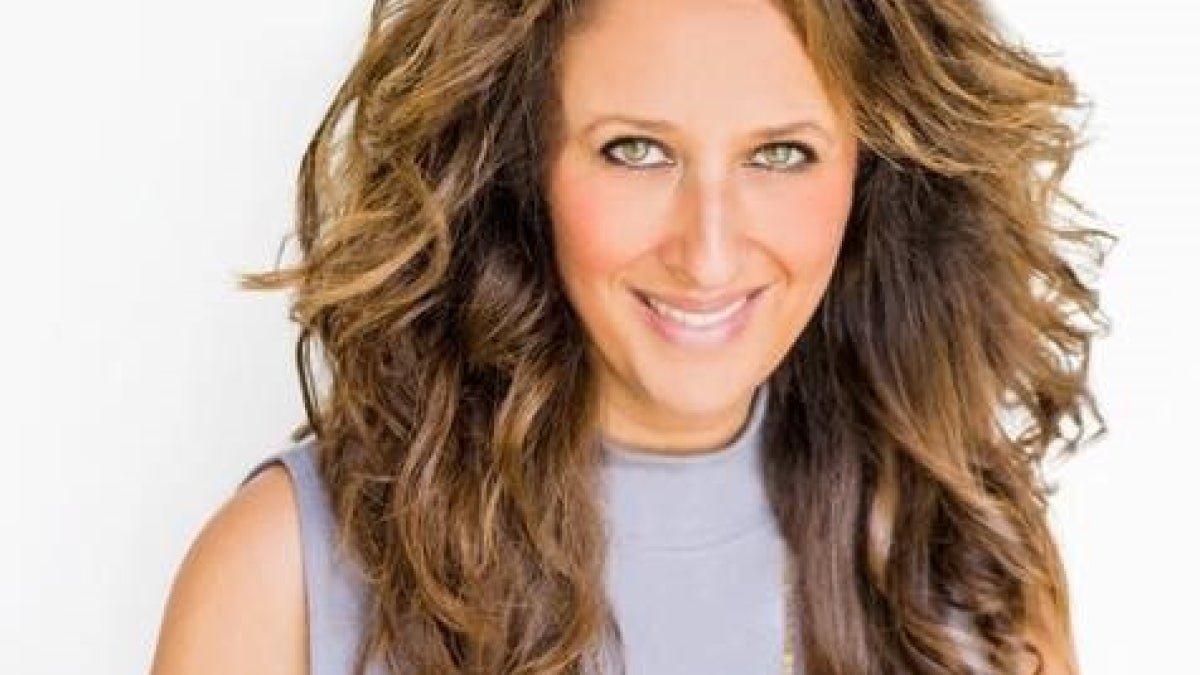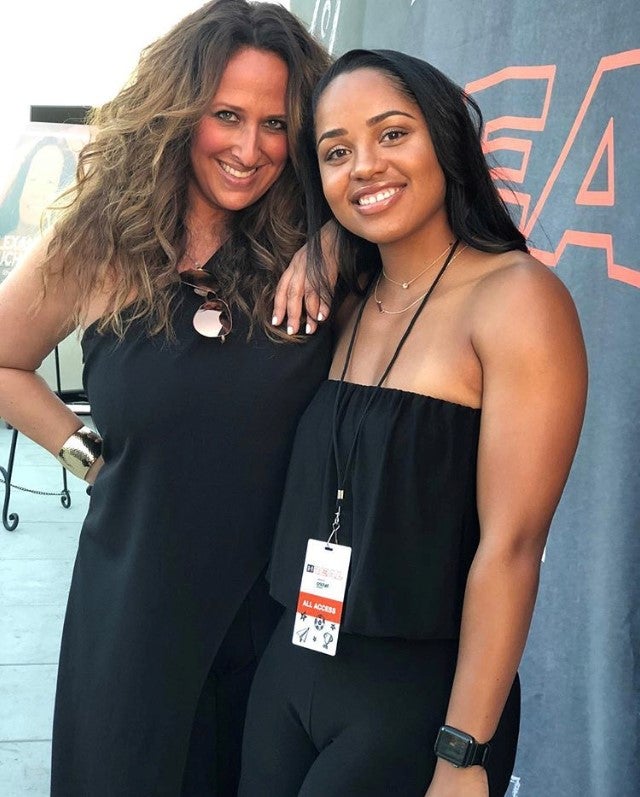Hugh Downs School alumna sharpened her communication skills with the NBA

Felisa Israel.
After a 20-plus-year career with the NBA, including serving as NBA Entertainment’s director of live programming and entertainment and helping start the WNBA, Felisa Israel started her own live event production company, 10 Fold Entertainment.
Israel is an Arizona State University alumna who graduated from the Hugh Downs School of Human Communication in 1994.
Guided by a passion for creating memorable live moments and a philosophy of doing everything tenfold, Israel and her team have partnered with some of the biggest names in sports, media and entertainment to produce a variety of successful events, using their unique blend of expertise to excite audiences and exceed expectations at every stop.
In addition, Israel has taught a sports and entertainment class at UCLA's Anderson School of Management for the past few years. This summer, she is launching IMPACT, an internship placement program hosted at UCLA's Anderson Business School for young professionals worldwide that will teach them about being an intern and help them to secure paid internships at high-growth sports and entertainment companies.
We talked to Israel about her time at ASU and how she applies it in her current position.
Question: What do you love about your current job?
Answer: I enjoy being creative. I am also proud to have created a company that reflects my values, including respect and teamwork. I really enjoy creating and producing events and then watching them come to life, along with the fans.
Q: What was your "aha" moment, when you realized you wanted to study the field you majored in?
A: I started as a business major before switching to communication. In business school, they expected us to read a lot of chapters and apply that information to multiple-question tests. My brain couldn’t retain that much information. I spoke with my adviser in the business school who told me I should try the school of communication. They thought it would be a good fit for me since I exceeded in certain areas, including interpersonal communication and public speaking. Both came very naturally to me.

Felisa Israel with an intern at her company, 10 Fold Entertainment.
Q: What made you choose ASU?
A: I’m the first-born, I come from a Jewish family and my mother wouldn't let me leave home. I started at ASU, tried UofA for a semester, but my heart belonged at ASU so I quickly went back after a semester and (I'm) proud to say I graduated from ASU!
Q: Is there a particular faculty member at ASU who was influential?
A: Kay Faris at the W. P. Carey (School of Business) Dean’s Office. She was my mentor as a freshman and recognized my strengths and areas of improvement. She helped to encourage me to switch to the department of communication, noticing that I excelled in that area.
Q: What were the most useful classes you took?
A: I took a class on interpersonal communication and learned about being a “participant observer.” I’ve found myself using this technique over the years and it has helped me quite a bit. For instance, if I am sitting at a conference table and the conversation is at such a high level where I’m not necessarily one of the contributors, I can still participate by observing. I am able to do research just being at the table, learning how the group speaks to one another and listening to the different terms used. It made me realize I might not be the one giving the direction or making the decisions, but I am still actively involved in the conversation and able to apply what I know to strengthen my daily work.
Q: How did the school of communication help you prepare you for your current career?
A: Communication is the most important ingredient for success. What I learned is that without proper communication, the opportunity for failure is really high. I am an advocate of overcommunicating even though I sometimes drive people crazy! But I know what I am saying will stick in people's heads when they are making decisions.
Q: When you were interviewing for your first job out of college, what experiences at this school did you talk about? Internships? Group projects? Study abroad?
A: What stands out for me is knowing that I wanted to be in the entertainment business. I remember a teaching assistant in the then department of communication at ASU was talking to me about an opportunity at Channel 12, the NBC affiliate in Phoenix. I remember saying that I didn’t want to be in television. The TA pressed further, reminding me that television is part of the entertainment industry, and asked me why I wouldn’t want to be a part of all aspects of the industry. I did end up taking the internship and am still close to the woman for whom I worked. She is still a great supporter of mine.
Q: What advice do you have for students who may be following your path?
A: I am a huge advocate of internships. Go out and get your foot in the door. I tell students if they can earn trust, respect and credibility through respectful communication, it will get them further faster.
Q: What's something you learned while at ASU — in the classroom or otherwise — that surprised you, or that changed your perspective?
A: That school is tough, and what you’re ultimately passionate about might not come in the path that you think it should.
Q: What was your favorite spot on campus, whether for studying, meeting friends or just thinking about life?
A: A restaurant next to University Towers where I lived. They had great tuna melts and iced tea. I went there daily to relax and to study because I felt secure and peaceful there.
Q: If someone gave you $40 million to solve one problem on our planet, what would you tackle?
A: I would change the infrastructure of health care. I would turn hospitals, assisted living centers and doctors’ offices into spa-like environments to make people feel safe, cared for and relaxed when they are in a fearful state of mind. Although I don’t think $40 million would be enough.
Hospitals and doctors’ offices are typically sterile and depressing. When you walk into a spa environment, your senses immediately become calm. That’s why nature is so healthy. It’s about mind over matter. Your environment can influence your state of mind, and high-stress levels can worsen issues or circumstances.
More Sun Devil community

Open Doors report: ASU’s doors are open to the world
For the fourth straight year, Arizona State University is being recognized as the top public university choice of international…

ASU students receive $25,000 scholarships from NBA legend Magic Johnson
By Henry Smardo Serenity Reynolds Cronkite student Serenity Reynolds balances classes,…

ASU Accessibility Awareness Day advocates for a more inclusive digital future
By Jonathan CrowellAs technology continues to drive learning and research innovations, so do efforts to ensure digital…